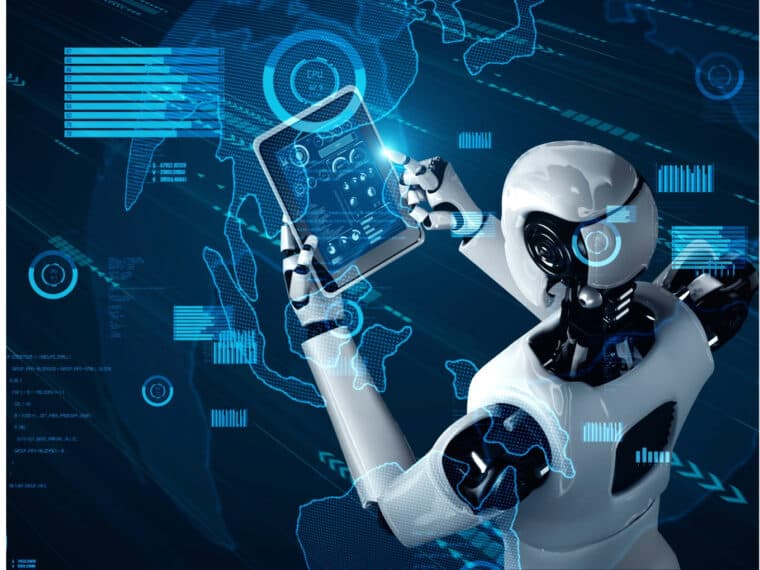
Within the realm of deeptech, three emerging fields have garnered attention and hold immense promise for the future: AI, ML and spacetech
In India, several startups are capitalising on the opportunities presented by AI, ML and spacetech
A very interesting recent trend is the convergence of AI and ML in spacetech which can pave the way for groundbreaking advancements
Deeptech includes companies that employ cutting-edge technology to tackle complex problems and have the potential to have a deep impact on society. TechWorks defines it as a ‘technology based on tangible engineering innovation or scientific advances and discoveries.’
The sector can address a wide range of problems, including global health crises, space exploration, climate change and energy crises.
Within the realm of deeptech, three emerging fields have garnered significant attention and hold immense promise for the future: Artificial Intelligence (AI), Machine Learning (ML) and spacetech.
Artificial Intelligence (AI)
AI has been making waves globally, revolutionising industries such as healthcare, finance and transportation. In India, the AI sector has witnessed significant growth, with multiple established startups launching AI-enabled products. The funding amount is a testament to the potential of AI in addressing complex problems and transforming industries.
The COVID-19 pandemic compelled companies to adopt a remote work model, prompting them to explore the integration of AI in their day-to-day operations to automate various business processes. As a result, there is a growing demand for startups equipped with AI capabilities, as companies seek to enhance their products and services to better serve a wider customer base and reduce operation costs.
Machine Learning (ML)
ML, a subset of AI, focuses on the development of algorithms and models that enable computers to learn from data without explicit programming. ML algorithms have found diverse applications in the field of deeptech. For instance, in healthcare, ML algorithms can analyse medical images, aiding in the early detection of diseases and facilitating accurate diagnoses. The ability of ML to analyse large datasets, detect patterns and make predictions is invaluable in solving complex problems across various sectors.
Spacetech
Spacetech, which encompasses the use of technology and systems for space exploration, satellite communications and Earth observation, is another promising field within deeptech.
Advancements in spacetech have not only expanded our understanding of the universe but have also opened up new possibilities for exploration and innovation. In 2022, the spacetech sector witnessed significant growth, achieving solid funding and reaching important milestones.
Indian Startups Working In Deeptech
In India, several startups are capitalising on the opportunities presented by AI, ML and spacetech. Startups like Skyroot and Pixxel have already launched their initial product versions, while Agnikul successfully carried out a test launch this year. Our portfolio company Bellatrix Aerospace also has multiple launches planned to test satellite engines this year. Bellatrix also had its test flight as part of ISRO’s poem platform.
These startups have achieved significant milestones and are attracting substantial investments, reflecting the confidence and support from the Indian community and the government.
In the last couple of years, the government has taken a keen interest in developing India’s spacetech capabilities. Supportive policy and infrastructure measures like the establishment of IN-SPACe (Indian National Space Promotion and Authorisation Centre) have had a substantial influence on the space sector and associated enterprises, while also providing a clear framework for drone policies.
Further, the DGCA (Directorate General of Civil Aviation) has initiated the development of a policy framework to regulate the operation of flying taxis. The Indian Space Research Organisation (ISRO) has also opened its facilities for private launch and testing purposes, facilitating the growth and development of startups.
Convergence Of AI, ML & Spacetech
A very interesting recent trend is the convergence of AI and ML in spacetech which can pave the way for groundbreaking advancements.
AI algorithms are already being utilised to study vast amounts of spatial data, including images, signals and telemetry. This enables scientists to uncover new celestial objects, investigate cosmic phenomena and gain valuable insights into the origins of the universe.
The potential applications of AI and ML in spacetech are vast and hold the key to unlocking new frontiers in space exploration and understanding. These startups are not only focused on catering to the domestic market but are also eyeing global opportunities.
By leveraging technologies like AI, analytics, augmented reality/virtual reality (AR/VR) and the Internet of Things (IoT), Indian startups are making their mark on the international stage.































 Ad-lite browsing experience
Ad-lite browsing experience